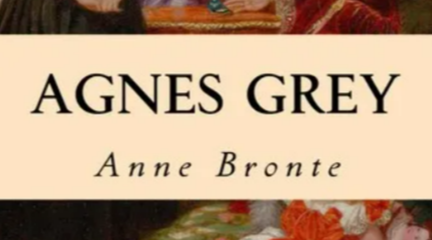Chapter XXV — Conclusion
byChapter XXV — Conclusion begins in a quiet domestic setting, where Agnes and her mother discuss the details of everyday life. Their calm conversation reflects the closeness between them, built over years of shared struggles and gentle companionship. When Agnes hesitates to mention Mr. Weston’s impending visit, it signals not just her nervous anticipation but also the significance she attaches to his growing presence in her world. Her reluctance reveals the emotional weight of his return, and the subtle shift in her priorities—from solitary contentment to shared happiness.
The meeting on the sands with Mr. Weston and his dog Snap is recounted with warmth, layered beneath which is Agnes’ restrained joy. She presents the incident to her mother with humility, downplaying its personal significance while silently cherishing every detail. As Agnes’ mother pieces together who Mr. Weston is and understands his respectable character, her attitude shifts from vague politeness to genuine approval. This scene illustrates a critical turning point in their relationship—not just between Agnes and Mr. Weston, but also between Agnes and her mother, as she seeks and gains maternal validation for her growing attachment.
Mr. Weston’s frequent visits blend seamlessly into their modest routine, adding liveliness without disrupting the harmony of their home. His conversations with Agnes’ mother offer a view of ease and natural compatibility, one that Agnes admires and silently longs to mirror. Although she doesn’t always participate in the conversation, her quiet observations reflect deep appreciation and the tender yearning for companionship rooted in mutual respect. This progression marks the steady deepening of intimacy between Agnes and Mr. Weston, conveyed more through action than declaration—a hallmark of the novel’s emotional realism.
When Mr. Weston proposes, the moment is refreshingly candid. He does not mask his intentions behind elaborate speeches but speaks directly, reflecting a sincerity that matches Agnes’ quiet resolve. Her initial response is not of unthinking joy but careful contemplation, shaped by duty toward her mother. This pause underlines the enduring Victorian value of filial responsibility, where individual happiness is weighed against family harmony. Their decision is grounded in mutual respect and selflessness, making the proposal feel not like a romantic climax but a natural next step.
As they prepare for marriage, Agnes shares her thoughts on the blessings she hopes to carry into this new chapter. She views her union not as an escape from hardship but as a continuation of the principles she’s always lived by—patience, kindness, and service. Even in her joy, Agnes reflects modestly on her good fortune, never allowing sentiment to overtake her sense of duty. Her voice remains steady, reaffirming her belief that real happiness is earned through moral clarity and emotional constancy.
The narrative closes with Agnes reflecting on the life she and Mr. Weston have built—modest, loving, and deeply fulfilling. She does not boast of luxury or grandeur but instead takes pride in her roles as a wife and mother, anchoring her satisfaction in simplicity. Their union, she implies, is not perfect because it is free of conflict, but because it is founded on shared values, mutual encouragement, and a quiet resilience. She finds joy in small triumphs and strength in shared burdens, painting an ideal of marital life that aligns with the Victorian ideal of moral domesticity.
In this closing, Agnes presents not a conclusion but a continuation—a life not capped by romantic success but enriched by it. The story resists dramatic flourish, instead embracing calm contentment, moral clarity, and emotional maturity. Bierce’s tone, while steady and sincere, carries the unspoken weight of a life hard-won through struggle, grace, and emotional depth. The chapter becomes a testament to love built on character, not chance; on devotion, not drama; and on companionship, not conquest.
Ultimately, the final chapter leaves the reader with a quiet sense of fulfillment. It champions the virtues of perseverance, humility, and steadfast love, aligning Agnes’ personal journey with the broader themes of the novel. Her story concludes not in grand declarations but in a life gently lived, reminding us that the truest victories are often the quietest ones.

